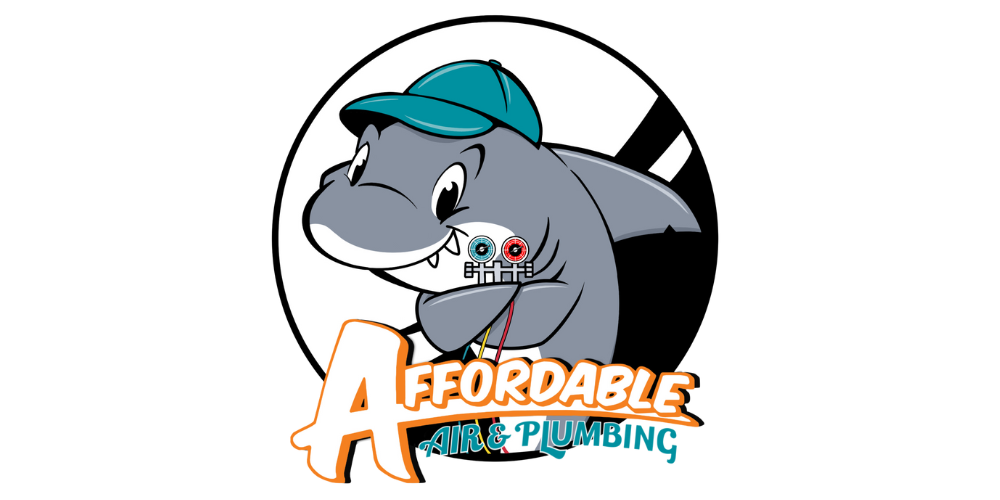
Water Heater Replacement in Cape Coral, Florida
Available 24/7 - Same Day Installation and Repairs
Professional Water Heater Installation in Cape Coral
At Affordable Air and Plumbing, we recognize the critical role a dependable hot water supply plays, particularly in the unique climate of Florida. Whether you're contending with a malfunctioning unit causing disruptions to your daily routine or seeking to enhance efficiency with an upgraded system, our dedicated team is poised to deliver exceptional service tailored precisely to your requirements.
When should you replace your water heater in Cape Coral?
Several factors play a role in determining the lifespan of a water heater and knowing the symptoms of a failing water heater can protect your home from catastrophic leaks and failures.
Age: Most traditional water heaters have a lifespan of around 8 to 12 years. If your water heater is nearing or exceeding this age range, it's wise to consider replacing it, even if it's still functioning.
Frequent Repairs: If you find yourself calling for repairs on your water heater frequently, it may be more cost-effective in the long run to invest in a new unit rather than continuing to patch up an old one.
Decreased Efficiency: As water heaters age, they become less efficient at heating water, leading to increased energy bills. If you notice a significant spike in your energy costs or a decline in hot water production, it may be time for a replacement.
Rust or Corrosion: Visible signs of rust or corrosion on the tank or pipes are indicators of internal damage and potential leaks. In such cases, it's best to replace the water heater to prevent water damage to your home.
Strange Noises: Loud banging, popping, or rumbling noises coming from your water heater could signal sediment buildup or other internal issues that may warrant a replacement.
Leaking: Any signs of water leaking from your water heater should be addressed immediately. While minor leaks may be repairable, extensive leaking often indicates irreparable damage and the need for a new unit.
Inadequate Hot Water: If your water heater consistently fails to provide sufficient hot water for your household's needs, despite proper maintenance, it may be undersized or nearing the end of its lifespan.
By paying attention to these warning signs and scheduling regular maintenance checks, you can determine the right time to replace your water heater and ensure an uninterrupted hot water supply in your Cape Coral home. Get in touch today if you are experiencing any of the issues mentioned above and we will come out and assess your options for repair or replacement
Learn more about our comprehensive water heater solutions
-
Gas water heaters utilize natural gas or propane to heat water stored in a tank. They typically have a burner at the bottom of the tank, which heats the water and keeps it at a set temperature until it's needed. Gas water heaters are known for their relatively fast recovery time, meaning they can heat a new tank of water more quickly than electric heaters. They are also often favored in areas with frequent power outages since they don't rely on electricity to function.
-
Electric water heaters use electrical resistance coils to heat water stored in a tank. When hot water is needed, the heating element is activated, warming the water to the desired temperature. Electric water heaters are typically more energy-efficient than gas heaters, especially in areas where electricity costs are lower than gas. However, they may have slower recovery times compared to gas heaters, meaning they may take longer to heat a new tank of water.
-
Tankless water heaters, also known as on-demand or instantaneous water heaters, heat water directly without the use of a storage tank. When hot water is needed, cold water travels through a heat exchanger, where it is heated by either a gas burner or electric heating elements. Unlike traditional water heaters with storage tanks, tankless water heaters provide hot water on demand, eliminating the need for a storage tank and reducing energy consumption. They are often more compact and can be installed closer to the point of use, reducing heat loss in the distribution system. However, they may have a lower flow rate compared to traditional water heaters, which could be a consideration for households with high hot water demand.
-
Under-sink instant hot water heaters are small, point-of-use units designed to provide hot water directly at the sink or fixture where it's needed. These units typically do not have a storage tank and heat water on demand using either electricity or gas. Under-sink instant hot water heaters are ideal for providing hot water quickly and efficiently to a specific fixture, such as a kitchen sink or bathroom faucet. They are compact and can be installed in tight spaces, eliminating the need for long pipe runs from a central water heater. However, they may have limited capacity compared to larger, whole-house water heaters, making them suitable for individual use rather than whole-house applications.

